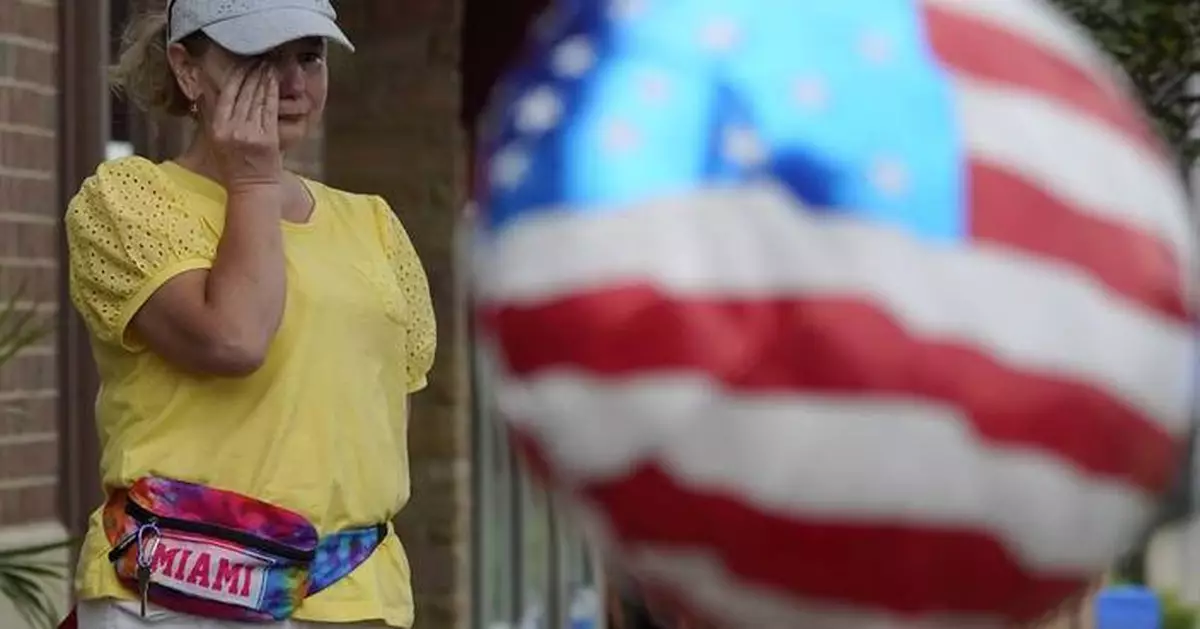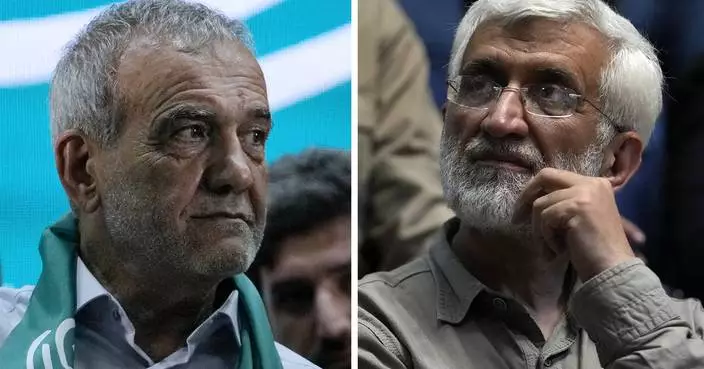Violence and mass shootings often surge in the summer months, especially around the Fourth of July, historically one of the deadliest days of the year.
A flurry of shootings around the holiday a year ago left more than a dozen people dead and over 60 wounded. Just two years ago, another mass shooting at a Fourth of July parade left seven people dead near Chicago. The mother of a 10-year-old boy left paralyzed by the attack said Wednesday that her family won’t go to this year's parade, which is returning for the first time since the shooting.
"I don’t know if we’ll ever be able to attend the parade again,” said Keely Roberts, who also was wounded.
The Gun Violence Archive, which tracks mass shootings involving four or more people regardless of whether they died, shows June, July, and August have had the highest total number of mass shootings over the past decade. The lowest totals were from December through March.
Independence Day topped the list with 58 mass shootings over the last 10 years — closely followed by July 5, according to the archive.
“It’s the gathering, the free time, the drinking,” said James Alan Fox, a criminologist and professor at Northeastern University, who oversees a mass killings database maintained by The Associated Press and USA Today in partnership with the university.
In the first half of this year, there were 19 mass killings — 14 of them shootings — with at least four dead in the U.S., according to the database. In 2023, the nation recorded the highest number of mass shootings — 39 — since the tracking began.
Researchers point to a combination of factors that historically have caused the summer months to see an increase in violence and shootings.
Mass killings are far more likely to happen at a home and most often the victims are related to the shooter or are a close acquaintance.
When school is out, families are spending more time together, children are often home all day and there's a greater likelihood of more victims when everyone is under one roof, said Jesenia Pizarro, a criminology professor at Arizona State University.
Teenagers also have more idle time on their hands. “It's like the opportunity shifts in the summer,” she said.
After two mass shootings hours apart in Dayton, Ohio, left a total of three people dead and eight injured in late June, police said one of the shootings took place at a vacant house where hundreds of teens and young adults had gathered.
“It could have been a lot worse," said Eric Henderson, the city’s assistant chief, who pointed out it was the third big party since mid-June where trouble erupted after young people took over a vacant house.
Family reunions, block parties and festivals in the summertime all bring more people together — and create more opportunities for trouble, more so when there's drinking involved.
“It doesn’t mean that those kinds of things aren’t around in March or in January. They’re just around at a lower extent than they are in the summertime,” said University of Miami criminologist Alex Piquero. “We do know that just about every summer there’s an uptick in violence. So I fully anticipate that happening this summer. I fully anticipate it happening next summer and the summer after that.”
The likelihood of being a victim of a mass shooting is still extremely low, but it does mean there's the potential for more victims if something happens at a crowded event.
During the first weekend of this summer, there were several shootings where multiple people were killed or wounded at large gatherings, including in Montgomery, Alabama, where gunfire erupted during an unsanctioned street party with more than 1,000 people. Police said nine people were shot and that investigators found more than 350 spent shell casings.
Several studies have linked warm weather and hotter than normal temperatures with rising tempers — and not just in the summer. They also link the increased temps with more violent crimes, although other factors often come into play.
Former New York City police officer Jillian Snider, now a lecturer at the John Jay College of Criminal Justice, said she saw this firsthand in neighborhoods where a lack of air conditioning pushed people out onto their stoops or into parks on sweltering days.
“It makes people a little angry because there’s nowhere to cool down and tensions rise,” she said. “You have no escape from that, you're just more upset.”
Associated Press journalists Sharon Johnson in Atlanta and Sophia Tareen in Chicago contributed.
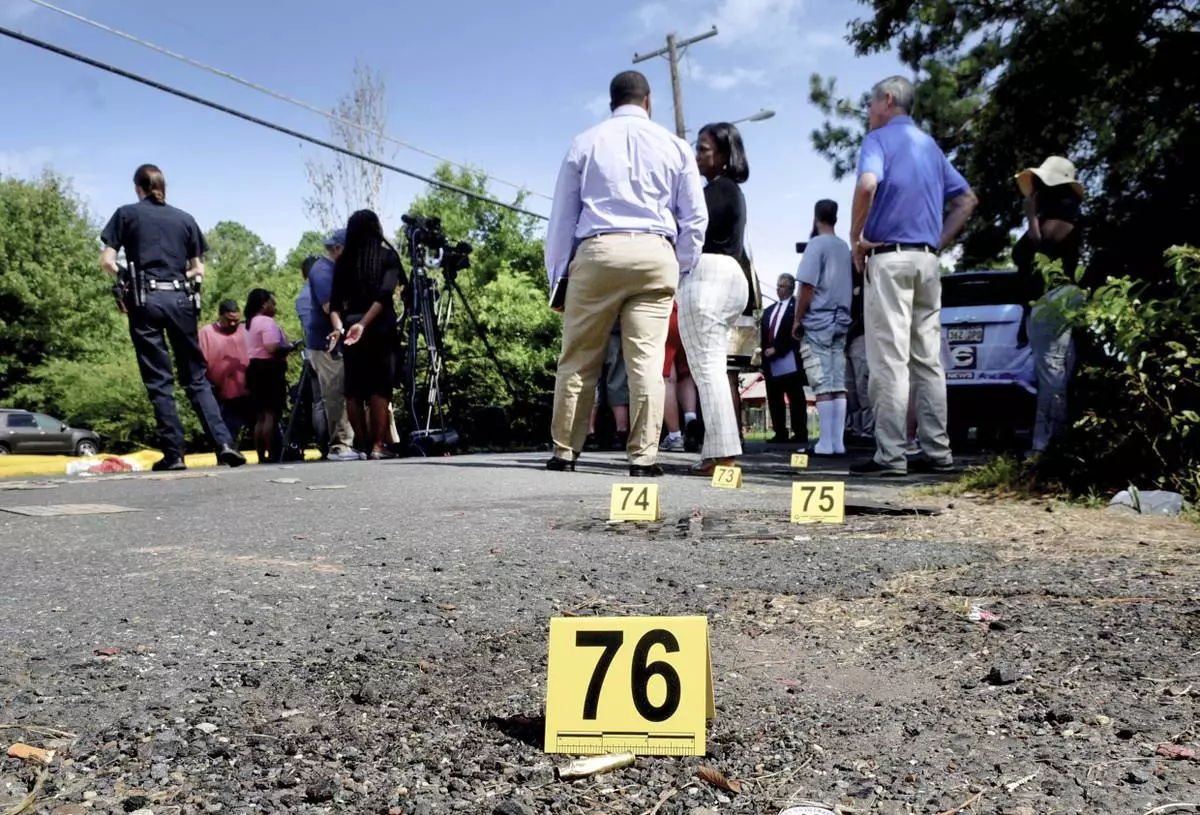
FILE - Bullet casings litter the ground behind a press conference on July 5, 2023, in Shreveport, La. At least three people were killed and 10 others wounded in the shooting. Violence and mass shootings often surge in the summer months, especially around the Fourth of July, historically one of the deadliest days each year. (Henrietta Wildsmith/The Shreveport Times via AP, File)
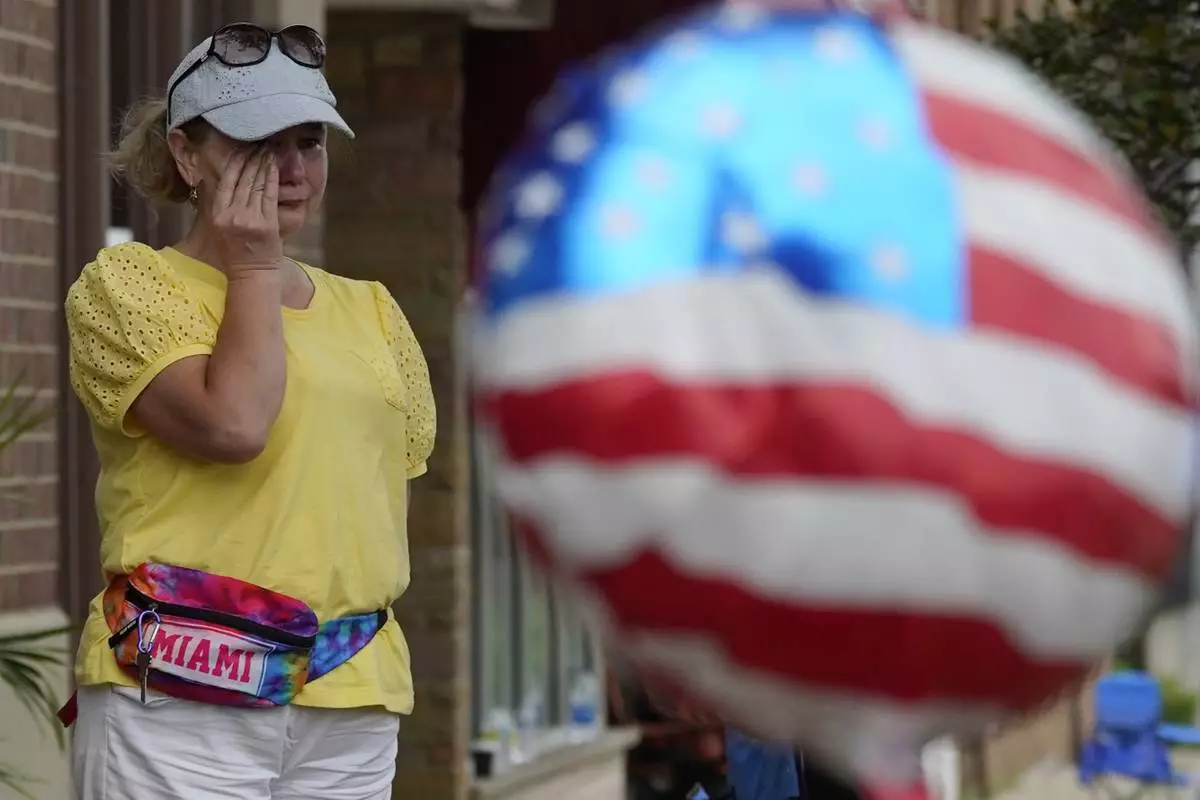
FILE - A woman wipes away tears after a mass shooting at an Independence Day parade that left seven people dead and dozens wounded, in the Chicago suburb Highland Park, July 4, 2022. Violence and mass shootings often surge in the summer months, especially around the Fourth of July, historically one of the deadliest days each year. (AP Photo/Nam Y. Huh, File)
MAIDUGURI, Nigeria (AP) — Ten years after declaring a short-lived caliphate in the Nigerian town of Gwoza, just across the border with Cameroon, Islamic extremists deployed female suicide bombers there — their first in the conflict-battered region since 2020 — to sound an alarm: One of the world’s longest wars is still happening.
The first of the three coordinated suicide bombings on June 30 targeted a well-attended wedding. The second was detonated at the burial ceremony for the victims, and the third at a hospital attending to those injured.
At least 32 people in total were killed in the attacks, including nine family members and friends of Mohammed Kehaya, a resident who is now worried about his safety in Borno state, the hotbed of the Islamic militancy that started in 2009.
Nigeria Defense Chief Gen. Chris Musa said the attacks were not a setback for the military but “a sign of desperation," describing them as a one-off by the extremists who once took the world by surprise when they kidnapped hundreds of schoolgirls in Borno in 2014.
“Some individuals would do everything possible for us not to succeed,” Gen. Musa said of the attackers.
However, several security analysts and locals interviewed about the bombings echoed concerns that the attacks must have taken a lot of planning and coordination and portend danger in Borno, where some villages lack security presence.
One of the extremists’ goals could be to distort the narrative that the security situation in the region has normalized, said Vincent Foucher, consulting senior analyst for West Africa at the International Crisis Group.
“It’s a way to show the war goes on,” Foucher said.
No group has claimed responsibility for the bombings, but blame quickly fell on Boko Haram, which since 2009 has launched an insurgency to establish their radical interpretation of Islamic law, or Sharia, in northeastern Nigeria. They have since splintered into different factions, together accounting for the direct deaths of at least 35,000 people and the displacement of more than 2 million amid a humanitarian crisis with people in dire need of foreign aid.
Two days before the bombings, Nigerian military spokesperson Maj. Gen. Edward Buba was meeting with reporters in the capital, Abuja, where he spoke of successes recorded by security forces in their war against extremists. Even while admitting it would “take time and effort to completely destroy” them, he repeated a phrase frequently said among Nigerian officials: “We have greatly degraded the terrorists.”
In Borno, however, the bombings sent shock waves across families and left many wondering whether they should pack what was left of their belongings and flee once again.
“Parents have been calling in to ask if their kids would be safe going back to school,” said Yusuf Ibn Tom, a public school teacher in Maiduguri. “Everyone here is scared.”
At the height of the insurgency in 2014, Boko Haram was considered the world's deadliest terrorist group, killing at least 6,000 people that year alone, according to the Institute for Economics and Peace’s Global Terrorism Index. A lot has changed since then that has made the extremists far less lethal.
The military has pushed them further into the fringes of the Lake Chad axis. The 2021 death of the group’s founding leader, Abubakar Shekau, demoralized some members and made suicide bombing less popular. Clashes between Shekau’s faction and the one linked to the Islamic State group have made the extremists turn against themselves, sometimes shifting the focus of attacks from the military and civilians and even contributing to the defection of thousands who are undergoing a reintegration program.
But what has not changed over the years is the “operational prowess” of the extremists, said Cameron Hudson, an Africa expert at the Center for Strategic and International Studies.
Attacks like the latest one “are rarely one-off incidents and are often part of a wider series,” Hudson said, not ruling out that more might come in the future. “That will give a better indication of the relative strength of the insurgency today as well as the Nigerian military’s ability to respond,” he added.
Asadu reported from Abuja, Nigeria.
Follow AP’s Africa coverage at: https://apnews.com/hub/africa
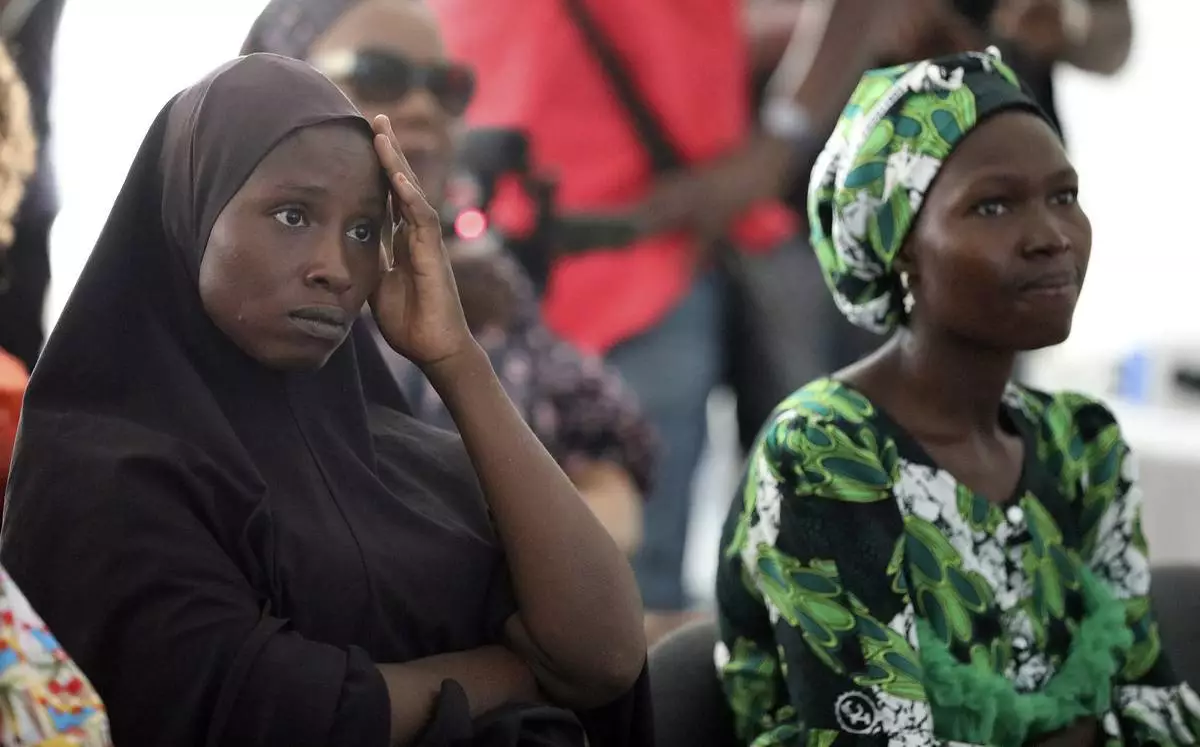
FILE - Parents of Chibok schoolgirls who were kidnapped in 2014 by Islamic extremists, attend a 10th anniversary event of the abduction in Lagos, Nigeria, on April 4, 2024. Recent suicide bombings in northeastern Nigeria have raised questions about the country's claim that it has degraded the Islamic extremists whose insurgency since 2009 has killed more than 35,000 people directly and displaced more than 2 million. (AP Photo/Mansur Ibrahim, File)
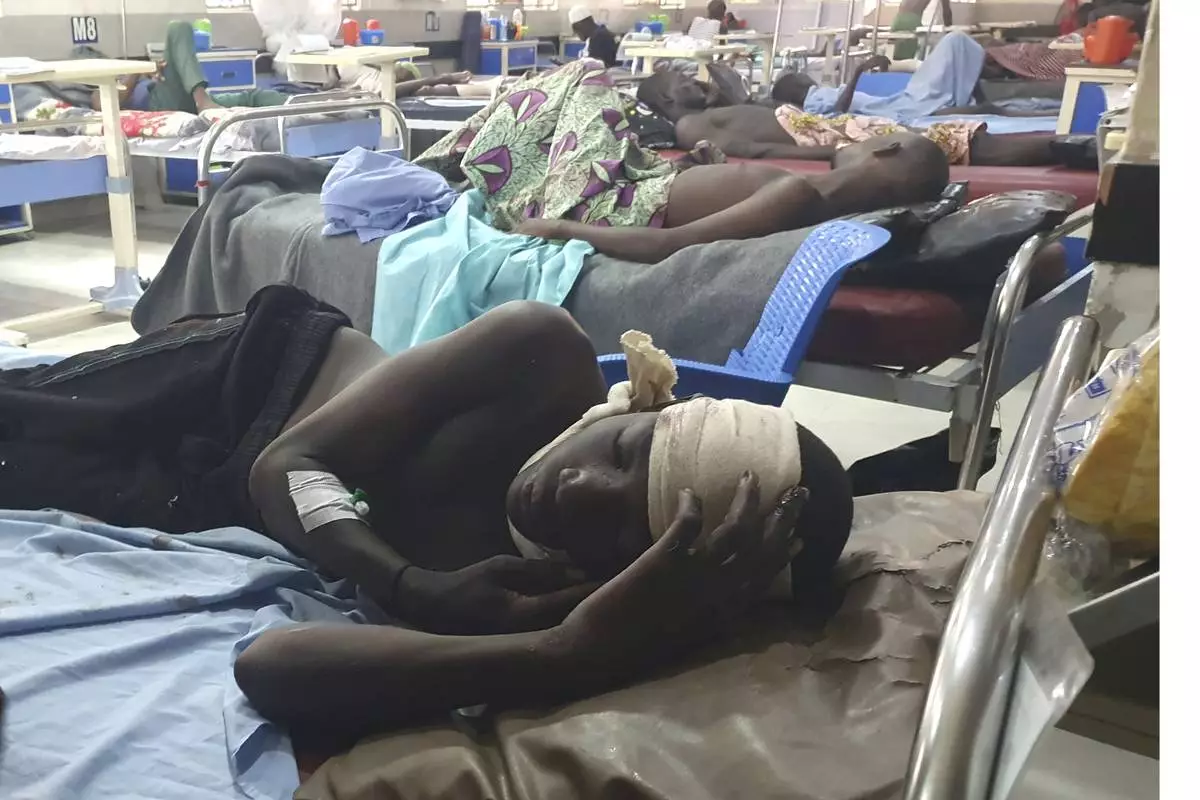
FILE - Injured victims of a suicide bomb attack receive treatment at a hospital in Maiduguri, Nigeria, on June 30, 2024. Recent suicide bombings in northeastern Nigeria have raised questions about the country's claim that it has degraded the Islamic extremists whose insurgency since 2009 has killed more than 35,000 people directly and displaced more than 2 million. (AP Photo/Joshua Omiri, File)
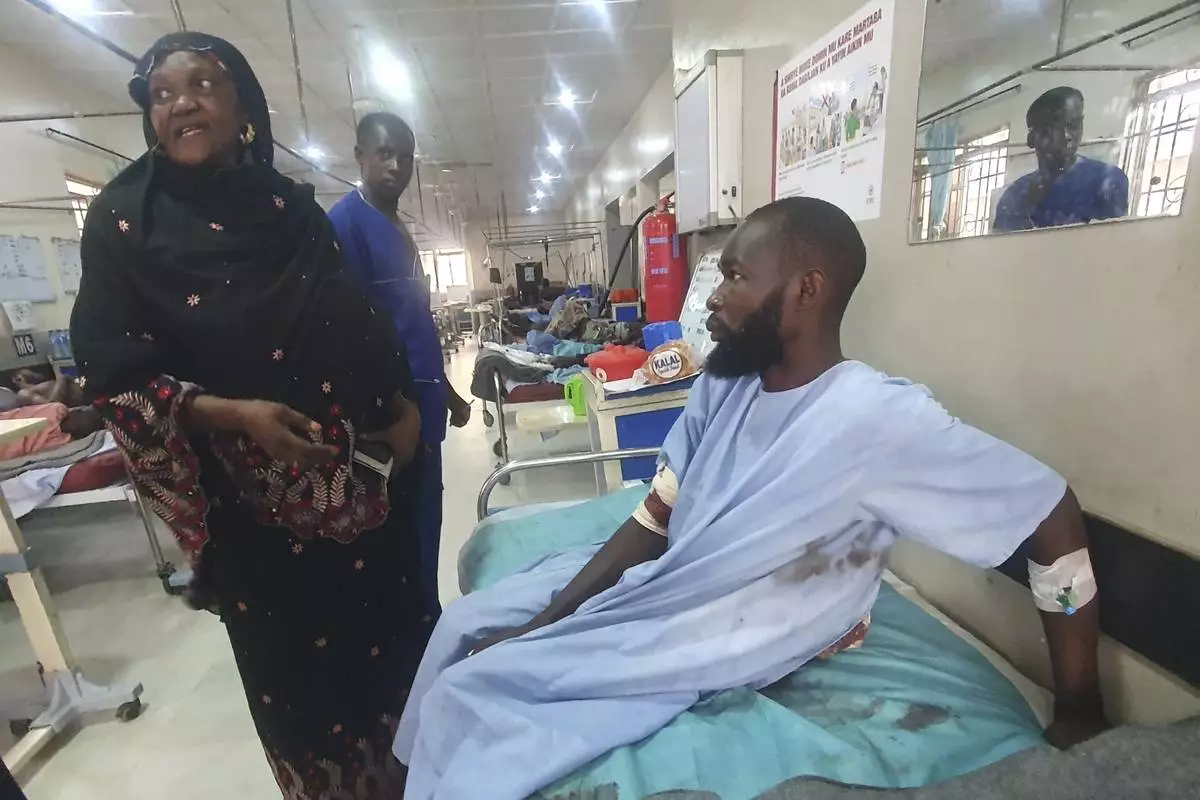
FILE - An injured victim of a suicide bomb attack receives treatment at a hospital in Maiduguri, Nigeria, on June 30, 2024. Recent suicide bombings in northeastern Nigeria have raised questions about the country's claim that it has degraded the Islamic extremists whose insurgency since 2009 has killed more than 35,000 people directly and displaced more than 2 million. (AP Photo/Joshua Omiri, File)




